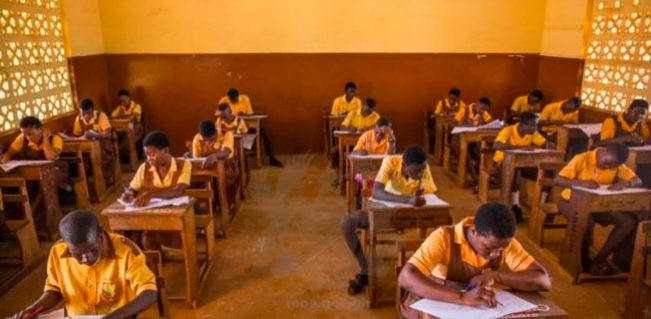BECE starts today, and students are expected to demonstrate their knowledge in various subjects. Good luck to all the candidates participating in the examination. Also, WAEC has outlined five things the students shouldn’t do.
The West African Examinations Council (WAEC) has strictly prohibited the use of cell phones and other communication devices at examination centres by candidates, invigilators, and supervisors.
“Neither Supervisors, invigilators nor candidates are permitted to bring mobile phones into examination halls,” stated Mr. John K. Kapi, Head of Public Affairs, WAEC National Office, during a press conference in Accra. This briefing aimed to update stakeholders and the public on the preparations for this year’s Basic Education Certificate Examination (BECE), which begins on Monday, July 8, 2024.
A total of 569,095 school candidates and 1,366 private candidates are expected to sit for the BECE this year. Mr. Kapi urged parents to ensure their children do not bring mobile phones to examination centres, warning that a candidate’s entire results would be cancelled if found with a phone.
Invigilators and supervisors have been instructed to conduct thorough inspections to prevent candidates from bringing cell phones or other unauthorized items into the exam halls. Furthermore, Mr. Kapi advised that only individuals directly involved in the examination should be present at the centres, explicitly barring school proprietors, parents, and headmasters from the premises.
WAEC has assured that adequate security arrangements are in place for all examination centres. Candidates were reminded to write their names and index numbers in full on their answer booklets and question sheets. Failure to comply with this instruction means the Council will not be able to allot scores to the candidate.
Mr. Kapi expressed concern over instances where candidates write telephone numbers or phrases such as “help me,” “call me,” or “just call my mum” in their answer booklets, and some even insert money to solicit help from examiners. This, he clarified, is classified as seeking external assistance, a punishable offence.
Candidates were also cautioned against removing parts of the question paper or answer booklets, refusing to submit worked scripts, or seeking help from non-candidates during the examination. Additionally, Mr. Kapi warned against dishonest website owners and the dangers of engaging in “massive cheating.”
Here’s a breakdown of what candidates must not do:
- Bring mobile phones or other electronic devices: This applies to both candidates and exam officials (invigilators and supervisors).
- Engage in any form of communication: This includes writing phone numbers, phrases like “help me” or “call my mom” in answer booklets, or attempting to contact anyone outside the exam hall.
- Solicit external assistance: Offering money to examiners or seeking help from non-candidates is strictly prohibited.
- Tamper with exam materials: Removing parts of the question paper or answer booklets, or refusing to submit completed scripts are all considered offenses.
- Fall prey to cheating scams: WAEC warns candidates to be wary of websites claiming to have exam questions.
Source: myghanamedia.com
 Home Of Ghana News Ghana News, Entertainment And More
Home Of Ghana News Ghana News, Entertainment And More





